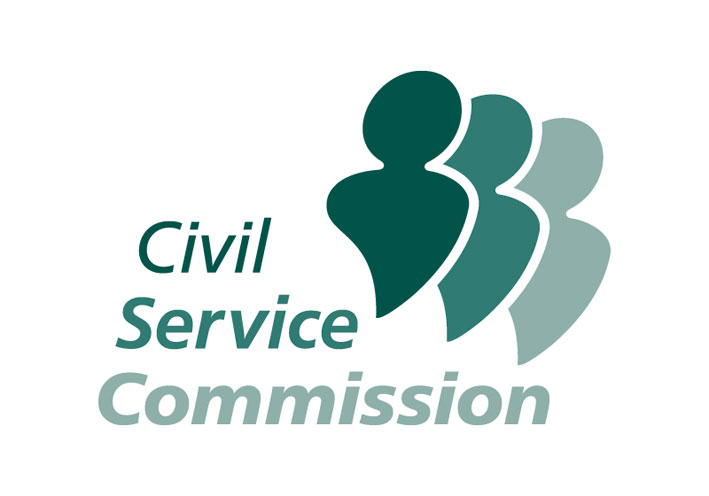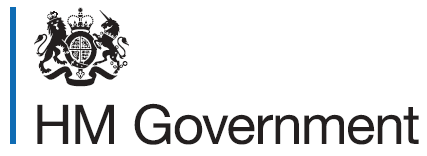Disability - Recruitment and Workplace Adjustments Online Event
The second online disability event on Wednesday 28th April was aimed at both prospective candidates for Senior Civil Service roles who have a disability and hiring managers alike. The event was chaired by the Chief Executive of the Civil Service Commission, Peter Lawrence OBE. The panel of speakers included an independent Civil Service Commissioner, Rosie Glazebrook alongside Seonaid Webb MBE (Deputy Director, DEFRA and Deputy Disability Champion), Jo Oakley (CS Workplace Adjustments Service Team Leader) and John Knight (The Commission’s Disability Advisor).
The Civil Service Commission regulates recruitment into the Civil Service to make sure it is fair, open and merit-based. Commissioners personally chair recruitment competitions for senior roles.
The panel covered a range of topics of relevance, as well as giving hints and tips based on their own experiences:
- What are the Recruitment Principles?
- What do Commissioners look for?
- Interview tips and guidance
- Workplace Adjustments
- Q&As throughout via Slido
The full recording of the event can be found through the link below:
In addition, there were a number of unanswered questions on Slido that the panel did not have time to address during the live event. The questions and answers can be found below:
1. Does the civil service have to hire a certain amount of people with disabilities into senior management? Do they positively discriminate in any way?
No, there are no targets for recruiting people with disabilities into senior management. The Civil Service does not positively discriminate on any protected characteristics, although there are often positive actions available such as mentoring or development programmes that help prepare people for the future.
2. How do you counter the self-limiting belief that questions whether you only got the interview because of your disability?
Your disability is a part of you, but it doesn’t have to define you or limit what you can achieve. Know that you have met the minimum standards to progress to the interview stage through your skills, knowledge, experience and work ethic. Review your sift scores and any feedback. Speak to a coach/mentor/your line manager and take time to reflect on your CV, Behaviour examples and Personal Statement and everything you’ve achieved in your career to date.
3. I'm curious, why is there such a heavy presence of psychologists and psychometric testing during these recruitment processes?
Any assessments included in the process are decided in order to enhance the evidence about candidates and are tailored to the role.
4. When you are invited to interview - do they assess who goes forward simply from the interviews or do they take the application and interview into account?
All aspects of the evidence gathered during the process are taken into account. If there have been assessments, questions relating to these may be asked in the final interview, together with the initial application and final interview.
5. Do you have any tips for hiring managers who are recruiters on how to break down the perception barrier of DCS/GIS declarations on applications, being considered as unconscious bias and candidates not being progressed?
By ensuring there are diverse sift and interview panels who have completed the appropriate success profiles, disability confident and/or equality and diversity training. Anonymise this information from the sift process, and ensure the sift panel have set and agreed on a clear minimum standard or score prior to the sift taking place. Only share with the sift/interview panel the information they would need to be aware of as the candidate progresses through different stages of the recruitment process, e.g. if an individual was invited to interview the panel and those organising the interviews would need to be aware of any requested adjustments such as, for example, wheelchair access requirements, extended interview time, regular breaks etc.
6. Could a dyslexic person have interview questions in advance if they requested it as a reasonable adjustment? What are the Commission’s views on whether this gives them an unfair advantage over other candidates?
We would expect departments to consider each request for reasonable adjustments on its own merits, as well as considering whether one candidate is advantaged by the process. You would need to consider whether your process could be seen as creating a disadvantage to a person with a declared disability. The purpose of the Disability Confident scheme and reasonable workplace adjustments is to create a level playing field for someone with a disability. We would therefore expect you to consider the specific nature of the disability and take advice where necessary. Allowing sight of the questions shortly before the interviews, or granting additional time are all examples of reasonable workplace adjustments, as long as we can see the justification for using them, the Commission would be content.
One consistent record of the interview should be retained by the department, agreed by the whole panel, and the appointment made on merit.
7. Is there an alternative to lodging formal complaints when things seem to have gone wrong? Sometimes the process can feel somewhat Kafka-esque!
The first step is to seek feedback and find out why you were unsuccessful – the response may well explain what happened and why, leading you to review the basis of your complaint. If you remain dissatisfied, then you can make a formal complaint through the appropriate process as set out in the original advert.
8. With the new DELTA (Disability Scheme) programme being launched for this year's Future Leaders Scheme, do presenters feel that the way the Civil Service is run will need to fundamentally change to accommodate more disability in the SCS? Eg changing deadlines for papers, accommodating new ways of working for Board meetings etc?
As part of the CS Reform Agenda, Smarter Working in the Civil Service (formerly Build Back Better), is taking forward the positive lessons from the Pandemic on different ways of working. They are looking at hybrid ways of working, which will support accessibility and inclusion, health and wellbeing and work-life balance.
9. How do you go about getting an assessment for what adjustments you might need? Or do you suggest them yourself?
If you think you may need workplace adjustments (you will, of course, probably be best placed to judge) speak to your line manager and check on your department’s intranet site for Workplace Adjustment Guidance. The assessment routes will differ depending on which department you work in. The guidance should explain your department’s end to end workplace adjustment process and signpost you to the correct routes from assessments, through to the procurement of your adjustments. Some departments use the Civil Service Workplace Adjustment Service, others will have a central HR or Health & Safety team or line managers arrange assessments directly through their Occupational Health (OH) providers.
It is worth noting that OH assessments aren’t always necessary, and can cause unnecessary expense and delay implementing adjustments. Depending on the type of disability or health condition, and how long you have lived with this, you may know exactly what adjustments you need to remove any barriers and support you effectively in the workplace. Completing a Workplace Adjustment Passport might help your line manager to understand your needs and support you better.
If you have any other questions please email us at: info@csc.gov.uk.

